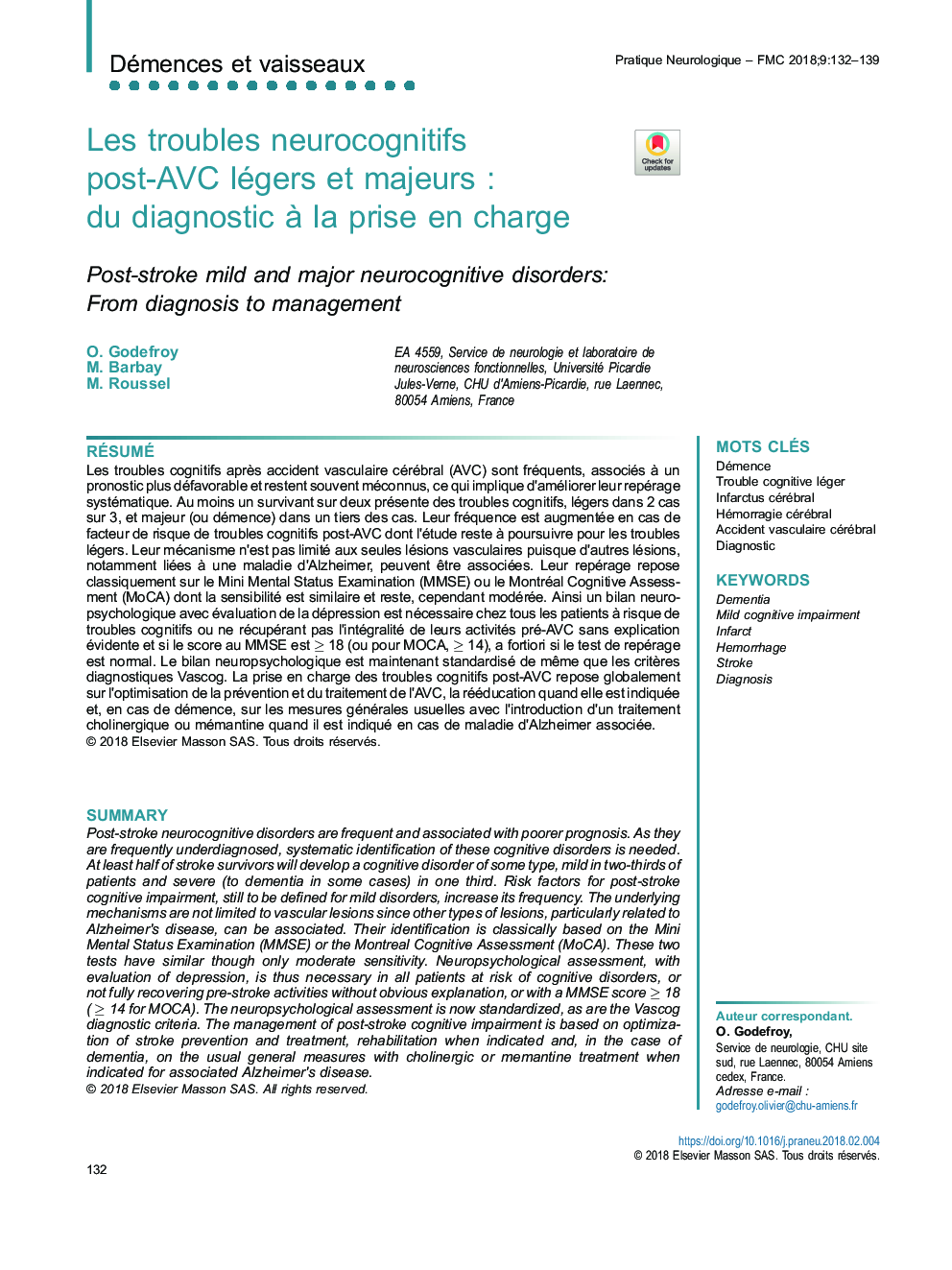| Article ID | Journal | Published Year | Pages | File Type |
|---|---|---|---|---|
| 8690612 | Pratique Neurologique - FMC | 2018 | 8 Pages |
Abstract
Post-stroke neurocognitive disorders are frequent and associated with poorer prognosis. As they are frequently underdiagnosed, systematic identification of these cognitive disorders is needed. At least half of stroke survivors will develop a cognitive disorder of some type, mild in two-thirds of patients and severe (to dementia in some cases) in one third. Risk factors for post-stroke cognitive impairment, still to be defined for mild disorders, increase its frequency. The underlying mechanisms are not limited to vascular lesions since other types of lesions, particularly related to Alzheimer's disease, can be associated. Their identification is classically based on the Mini Mental Status Examination (MMSE) or the Montreal Cognitive Assessment (MoCA). These two tests have similar though only moderate sensitivity. Neuropsychological assessment, with evaluation of depression, is thus necessary in all patients at risk of cognitive disorders, or not fully recovering pre-stroke activities without obvious explanation, or with a MMSE score â¥Â 18 ( â¥Â 14 for MOCA). The neuropsychological assessment is now standardized, as are the Vascog diagnostic criteria. The management of post-stroke cognitive impairment is based on optimization of stroke prevention and treatment, rehabilitation when indicated and, in the case of dementia, on the usual general measures with cholinergic or memantine treatment when indicated for associated Alzheimer's disease.
Keywords
Related Topics
Life Sciences
Neuroscience
Neurology
Authors
O. Godefroy, M. Barbay, M. Roussel,
